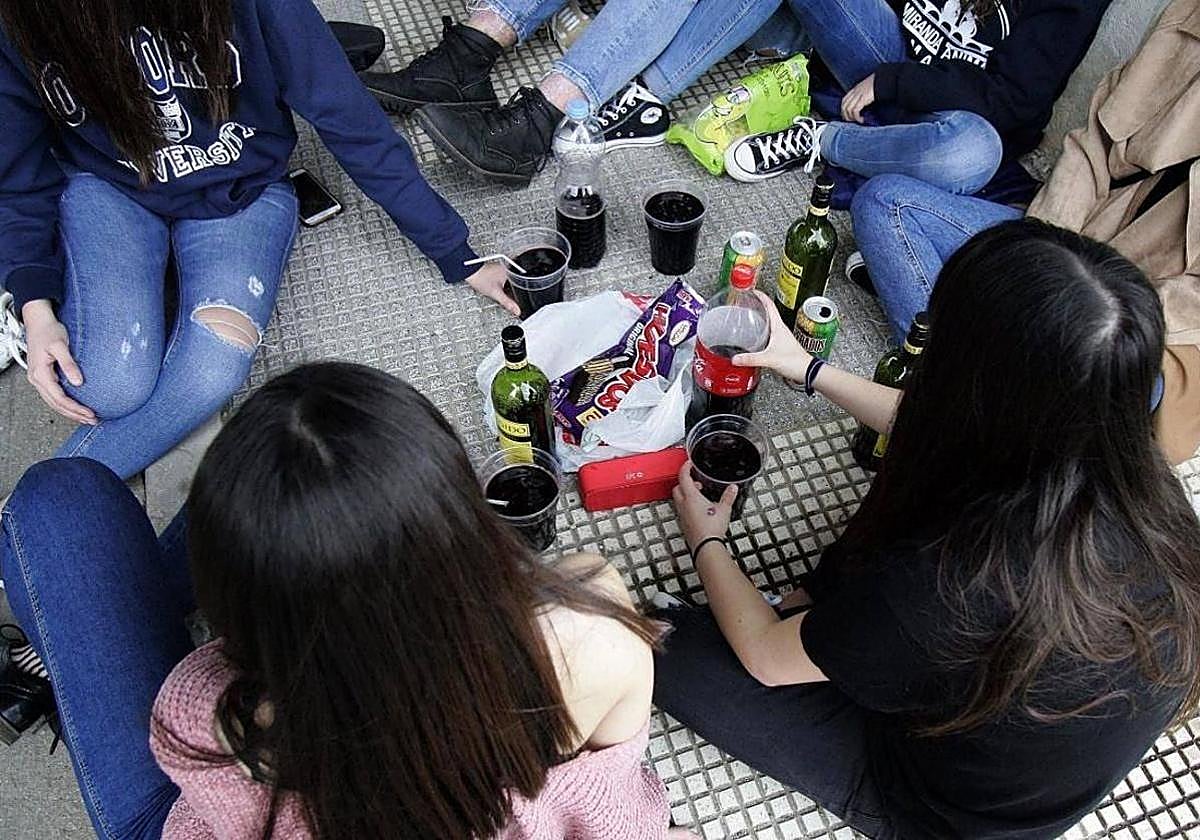Breathalyser refusal fine: up to 600 euros if 'no-blow' in alcohol-free areas
The most serious penalties under the future countrywide law on alcohol and under-age drinking are fines to businesses of up to 600,000 euros and a forced closure of up to five years
Adolescents (under-18s) or adults who refuse to blow into a breathalyser when asked to do so by any policing authority while in a location where the consumption of alcoholic drinks is prohibited may be fined between 60 and 600 euros.
This is one of the penalties envisaged in the draft bill on the prevention of alcohol consumption and its effects on minors, which the Spanish government intends to send to Parliament for approval before the end of the year. Among other measures, it prohibits any citizen (minor or adult) from drinking this type of beverage in all schools and institutes, in centres for minors, in student residences with teenagers and in any sporting, leisure or public entertainment event designed for minors, such as sports matches involving children, cadet or youth teams. The only exception, according to Secretary of State for Health Javier Padilla, is consecrated wine that priests will still be able to drink at mass, even when children are present as with catechesis (preparations for baptism or communion).
In the same category of minor offences, also punishable by fines of 60 to 600 euros, is the consumption of alcohol by minors or adults when they do so in places or spaces prohibited by law. If adolescents are unable to pay the fines then the requirement to pay passes to their parents or guardians, but they will also be given the opportunity to avoid any payment if they participate in approved programmes to raise awareness of the risks of alcohol or treatment or rehabilitation should they have a drink problem.
Awnings, signs, bar chairs and tables displaying drink brands or logos within 200 metres of schools and children's playgrounds will be banned.
The next level of sanctions, the serious ones for businesses, are punishable by fines of 601 to 30,000 euros and may include the suspension or temporary closure of business activity, or the centre or place of business, for up to three years. These penalties are intended for adults who buy alcohol for under-age drinkers, for those who do not comply with the limitations placed on the advertising of alcohol and for those who serve or sell this type of beverage in prohibited places or situations.
The latter group, in addition to schools, sports grounds and playgrounds and the like, includes shops with products mainly intended for children but selling some kind of alcohol and the unlicensed street sale of these beverages.
The same fine will be imposed on those who fail to certify that a customer is over 18 when taking a can or bottle from a vending machine in their business premises, or self-service shops that do not place alcoholic drinks in a secure location out of the reach of minors. Convenience stores and retail businesses will receive specific training on their new obligations when this law is passed.
Those who act in a way that puts the health of citizens, especially children, at greater risk because their actions are done with clear intent, or they offend repeatedly or they make large profits, may be subject to very serious penalties of up to 600,000 euros, the closure of businesses or centres for up to five years and the loss of any official aid. As in the case of other offences, the drinks and the money obtained will be confiscated and they may be banned from contracting with public authorities for a period of two to six years.
Zero alcohol still means zero advertising
Another of the effects of this law, if this point does not change before its approval, is that all awnings, posters, etched signs and terrace furniture in bars and restaurants that include the brand or logo of an alcoholic drinks company must be removed from public view if they are within 200 metres of schools, health or social centres, parks or children's leisure areas. The regulation, which prohibits all alcohol advertising in the street, will also include logos and brands within the 200-metre limit, even if they promote only their zero alcohol (0.0%) products.
The famous 'Tío Pepe' sign located in Madrid's Puerta del Sol square looks like it could be saved from this legal restriction, as there is no school or park within at least two hundred metres.
The ban on advertising alcoholic drinks on public roads includes all kinds of advertising, be that on bus shelters, on all public transport and this includes the headquarters of all governing and public bodies.
The limitations of the future law will also mean that the "recommendations" of producers for "moderate" or "responsible" consumption of their drinks will disappear from any form of advertising or promotion. Javier Padilla explained that these terms can no longer be permitted because all the scientific studies indicate that the only alcohol consumption that does not cause damage to health is zero.

